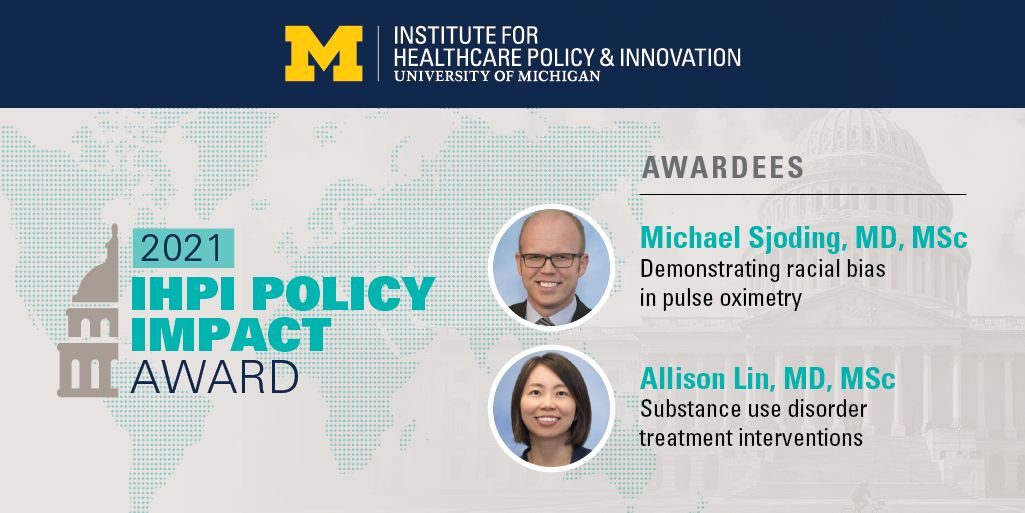

Lin, Sjoding honored for impact on health policy and practice
Researchers receive IHPI's annual award for work improving access to substance use disorder treatment, identifying racial bias in medical technology
During its annual Member Forum on May 4, the University of Michigan Institute for Healthcare Policy & Innovation (IHPI) announced Lewei (Allison) Lin, M.D., M.Sc., and Michael Sjoding, M.D., as the 2021 recipients of its annual Policy Impact Award.
The award recognizes IHPI researchers who have had a significant level of sustained and direct engagement with policy audiences, and a clear illustration of policy impact beyond grant work and academic publications in the past year.
Lewei (Allison) Lin, assistant professor and director of the Addiction Psychiatry Fellowship Program in the Michigan Medicine Department of Psychiatry, was honored for her work identifying disparities in substance use disorder treatment and developing and testing novel virtually-delivered interventions to improve access and outcomes for this vulnerable patient population. She has and continues to engage with numerous state and national stakeholders to inform telehealth and addiction treatment policy. Most recently, her work has been cited in a bill under consideration by Congress that aims to reduce heroin overdoses among veterans.
Michael Sjoding, assistant professor of internal medicine, was recognized for his work uncovering racial disparities in the accuracy of pulse oximeters, devices used to measure the oxygen level of the blood. In a series of studies, Sjoding and colleagues found that Black patients were significantly more likely than white patients to have low oxygen levels that were missed by pulse oximeters. He has connected with national and international policymakers, press, and stakeholders to raise awareness of this issue of biased medical tech and identify regulatory and technological changes needed to correct it.
As recipients of the Policy Impact Award, Lin and Sjoding will receive $2,000 to support their ongoing research and will have their work showcased in a future IHPI policy brief.
More about Lin's work:
- Barriers to addiction care fell because of COVID-19. Now the challenge is keeping them down.
- Treatment barrier falls, but more remain, for people with opioid issues
- This drug could save their lives, but less than 2% of them get it
More about Sjoding's work:
- Pulse oximeters are less accurate in Black children
- Biased tech could determine who gets life saving therapy
- Commentary - More health inequality: Black people are 3 times more likely to experience pulse oximeter errors


